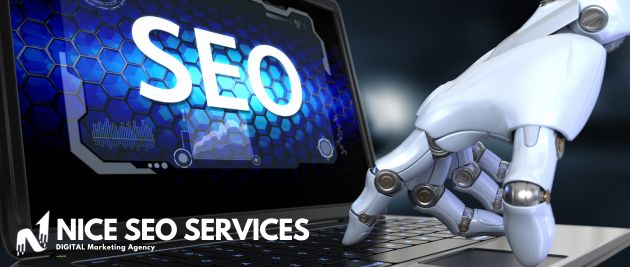Artificial Intelligence has been evolving nearly in every industry and it has impacted positively to the digital marketing and SEO space. One of the most transformative trends shaping Search Engine Optimization today is the use of AI tools.
Artificial Intelligence is revolutionizing how businesses approach SEO, from understanding search intent to automating keyword research, content optimization, and performance tracking. This blog post will explore how you can leverage AI to enhance your SEO efforts, improve your website rankings, and ultimately drive more traffic to your site.
What is AI in SEO?
Before diving into how Artificial Intelligence can be used in SEO, it’s essential to understand what it actually means.
In the context of Search Engine Optimization, AI refers to the use of machine learning algorithms and tools to analyze vast amounts of data and predict outcomes based on user behavior.
It helps search engines like Google deliver more relevant search results by understanding user queries in greater depth. For Digital marketing professionals, AI provides opportunities to streamline processes, gain better insights, and optimize websites more effectively.
1. AI for Keyword Research

One of the most time-consuming aspects of SEO is keyword research. Traditionally, Digital Marketing specialists would spend hours manually sifting through keyword tools to identify high-traffic, low-competition keywords. With AI-powered tools, this process becomes far more efficient.
AI can analyze search trends, user intent, and competitor strategies to suggest keywords that are not only relevant but also likely to drive traffic.
Tools like SEMrush and Ahrefs now incorporate AI to provide keyword suggestions, analyze keyword difficulty, and even predict keyword performance based on historical data. AI also helps identify long-tail keywords that are often missed in manual research but can drive highly targeted traffic.
Actionable Tip: Use AI-powered tools like Google’s Keyword Planner or SEMrush’s AI-driven Keyword Magic Tool to automate your keyword research and find untapped opportunities.
2. Content Creation and Optimization
Creating high-quality, optimized content remains a cornerstone of successful SEO strategies.
However, generating relevant, engaging content consistently can be challenging. This is where Artificial Intelligence tools like ChatGPT Jasper AI or Copy.ai come into play.
These platforms use natural language processing (NLP) to generate content ideas, create blog posts, and optimize content for specific keywords. These tools helps you with
- Generating content ideas based on current trends and topics in your industry.
- Creating outlines for blog posts or articles that align with SEO best practices.
- Optimizing content for readability, keyword density, and user engagement.
- Improving meta descriptions and title tags to enhance click-through rates (CTR)
Additionally, AI-based content optimization tools like SurferSEO and Clearscope can help ensure that your content is aligned with the top-ranking pages for your targeted keywords, optimizing it for user intent and search engine preferences.
Actionable Tip: Utilize these tools to automate and optimize your content creation process. Combine them with human creativity to produce engaging and SEO-friendly content.
3. Artificial Intelligence for On-Page SEO Optimization

On-page SEO optimization involves various elements such as meta tags, headers, internal linking, and URL structure. AI simplifies this process by analyzing the entire site’s structure and suggesting improvements that align with Online optimisation best practices.
AI-powered tools like MarketMuse and Yoast (for WordPress) can evaluate your on-page SEO and provide real-time recommendations. These tools use machine learning algorithms to identify gaps in your content, suggest schema markup implementation, and offer ways to enhance your internal linking strategy.
For example, AI can recommend adding LSI (Latent Semantic Indexing) keywords that complement your primary keywords, improving your content’s relevance to search engine crawlers.
Actionable Tip: Incorporate AI tools like Yoast or Rank Math into your CMS to monitor on-page SEO in real-time and implement AI-driven suggestions for improved performance.
4. AI for User Experience (UX) and SEO
Google’s algorithm increasingly emphasizes user experience (UX) in its ranking factors, and AI plays a crucial role in improving this aspect of SEO. AI tools can analyze user behavior on your website, including page load times, bounce rates, and session duration, to determine where improvements can be made.
For example, These tools can:
- Monitor user interactions on your website and suggest design improvements to make navigation smoother.
- Analyze heatmaps to see where users click the most, helping you optimize CTAs and important site elements.
- Predict user intent by analyzing historical data and user behavior, ensuring your content is aligned with their expectations.
For enhancing User experience – tools such as Hotjar and Crazy Egg provide valuable insights into how users are interacting with your website, allowing you to make data-driven decisions to enhance UX and boost web page rankings.
Actionable Tip: Use AI-based analytics tools to monitor your website’s user experience. Make UX improvements based on data insights to keep visitors engaged and improve your rankings.
5. AI for SEO Automation

AI is invaluable for automating repetitive tasks, such as technical audits, rank tracking, and reporting. This allows professionals to focus on higher-level strategy while the AI handles time-consuming tasks.
For example:
Auditing tools such as DeepCrawl or Screaming Frog can scan your website for issues like broken links, missing alt text, or slow loading pages and automatically provide suggestions for fixing these issues.
Rank tracking tools like Serpstat or Moz Pro use AI to predict fluctuations in rankings and help adjust strategies accordingly. These tools can automatically generate detailed reports based on your website’s performance, helping you quickly assess and tweak your Online web strategies.
Through these automations you can also quickly adapt to algorithm changes, and maintain a competitive edge.
Actionable Tip: Incorporate AI-driven automation tools into your SEO strategy to streamline your workflow and focus on data-driven decision-making.
6. AI for Predictive SEO
Predictive SEO is one of the most exciting developments in AI-driven search optimization. By analyzing historical data, search patterns, and user behavior, AI can predict which keywords or content topics will trend in the future. This allows businesses to create content ahead of time and capture emerging search traffic.
Tools like BrightEdge and Frase use machine learning to analyze thousands of data points, helping marketers anticipate shifts in search trends. This predictive power enables you to stay ahead of the competition by ranking for keywords before they become saturated.
Actionable Tip: Use predictive SEO tools to anticipate trends and create content that captures future traffic before your competitors.
Conclusion
Artificial Intelligence is no longer just a trend—it’s a game-changer for Search Engine Optimizations. From automating keyword research to optimizing user experience and predicting future trends, AI provides the tools to streamline SEO efforts, enhance performance, and drive more targeted traffic to your website. As search engines become more sophisticated, businesses that integrate AI into their Online marketing strategies will have a significant advantage.


